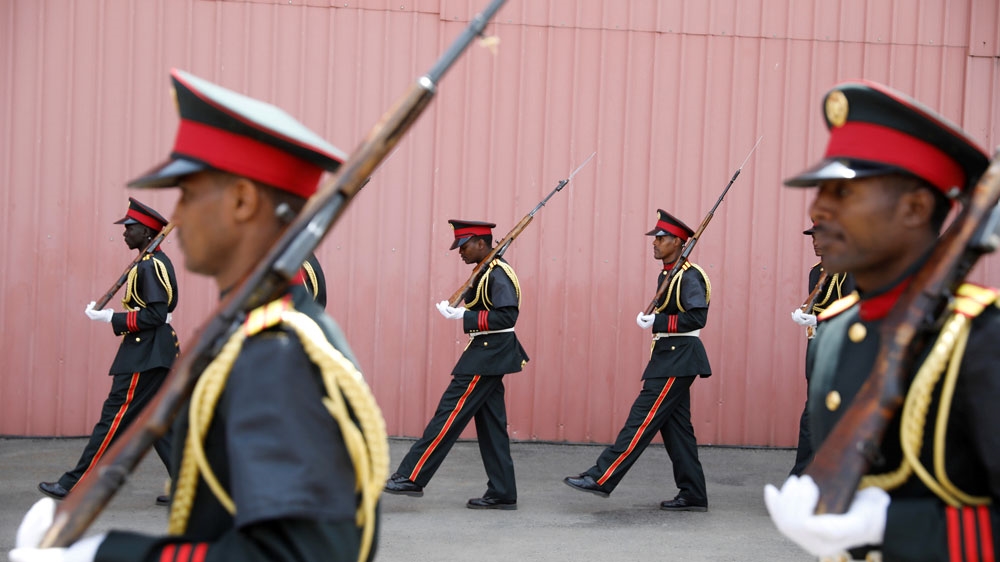Despite a stumble along the way, the reform that we have greeted with optimism and hope has been going for a year and a half. Today, the hope and optimism seem to have sadly evaporated. The initial euphoria has been replaced by a sense of despair, following a series of violent incidents. Our hope is ebbing away due to the administration’s’ foot-dragging. Those who have not been so enthusiastic about the change from the start or who have not been hopeful are waxing lyrical about vindication, chanting gleefully, “We get our wish.” Others who embraced the reform with genuine goodwill, vowing to support the process in the best possible way are left within a state ranging from betrayal to despair. Still others like me who have not yet lost hope in the reform process continue to push and egg the government on to change course in a timely manner, hoping against hope that the dawn will come.
That the country is in a dire state requires no analysis. Maybe our level of understanding about the looming threat could vary but the fact has attained the status of conventional wisdom. The various statements issued by the federal and regional governments recently are proof. To understand how the team that leads the reform and the administration is in a muddled state, it will suffice to listen to the July 1 speech of Prime Minister Abiy Ahmed in parliament. Though there could reasons that push the Prime Minister into a whirlpool of emotions, his speech was full of contradictions, devoid of any direction, filled with rage and threats, uncertainty and powerlessness and demonstrated fundamental flaw of ideas. For instance, the PM’s remark saying “one who does not accept the constitution could not raise the issue of freedom of expression,” has implications with regards to the violations of rights. Either the PM doesn’t accept his legal advisor’s advice or he uttered those words without any reflection. Or else, he is considering to resorting to silence, punish and suppress people he disagrees with.
The call for realistic, unpartisan criticism
As I believe this reform is confronted with many hurdles and challenges, I don’t
Animosities across this fault lines between these two extreme positions are intensifying, as increasingly manifested in the ill-informed, extravagant social media exchanges. The country’s elites are taking the most bellicose and extremist positions, pushing the country towards chaos. In addition to this, the mix of hate speech and false narrative are adding fuel to the flame.
The Abiy administration is plagued by a series of domestic and external problems and is under enormous pressure from various sides. How the administration would come out of the deadlock would depend largely on the leaderships’ qualities, strength, and problem-solving process.
There are main glaring problems, a deep social, political and economic crisis. Profound ethnic splits, deep poverty, chronic unemployment, identity and border questions, widespread corruption, decaying government infrastructure, ethnic

The direction the administration will take in the months to come would determine the response for the questions. If the administration decides to pursue “get-tough” measures and flex muscles to manage those problems, that would obviously be an invitation to trouble. If that is the administration is headed, it is unlikely to survive much longer, not even the span of the decades of iron-fisted rule led by the Tigray People Liberation Front (TPLF).
The period of the TPLF hegemony and the time of change now brought about by Oromo Democratic Party (ODP) and by its allies are different in so many respects. When TPLF took the rein of power there were indeed ethnic parties, but extremism and heightened ethnic consciousnesses didn’t take root in minds of people yet. So, the one and great challenge for TPLF was to
Conclusion
The Abiy administration should take seriously the challenges the country is facing and come up with urgent solutions.
-Ensuring the rule of law and sustainable peace without sacrificing the basic features of freedom of expression. Liberating journalists, party members and supporters that had been arbitrarily arrested following the recent event.
-Organizing reconciliation and peace forums to determine the nation’s future constitutional configuration with the view to easing and eradicating ethnic and regional tensions and preparing a memorandum of understanding between stakeholders and political parties to diminish the deepening anxiety and anger.
-Bringing groups, individuals from both ends of the political spectrum together and have a discussion to come up with common solutions
Unless we take serious precaution regarding the way we deal with the nation as an entity, the country is on the verge of collapse. The Prime Minister’s remark saying “Ethiopia’s sovereignty is not up for discussion. We will fight with a Kalashnikov,” has been distressingly familiar to that of the threat made by the former dictator Colonel Mengistu Hailemariam. The Colonel’s threat did not stop Eritrea from seceding.
Published under a Creative Commons Attribution-NonCommercial 4.0 International
The post The Abiy administration, withered hope.What next for Ethiopia? appeared first on Ethiopia Observer.